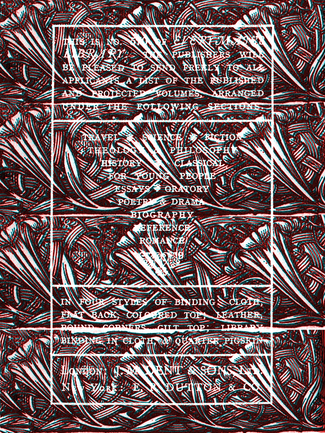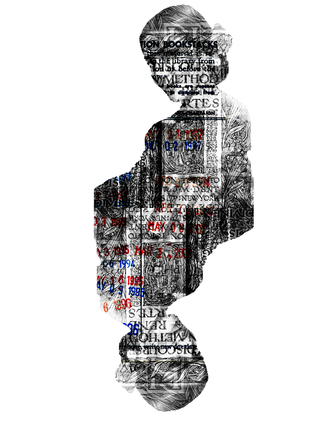News...
Bexley Public Library Centennial Art Show 2024
I am showing a couple of digital works in the Bexley Public Library Art Show.
The opening reception is on Friday, April 12th from 6:00pm-8:00pm
Information: https://bexley.libnet.info/event/10073485
I am showing a couple of digital works in the Bexley Public Library Art Show.
The opening reception is on Friday, April 12th from 6:00pm-8:00pm
Information: https://bexley.libnet.info/event/10073485
National Art Education Association Conference 2024
Exploring the Dynamic Intersections of AI, Art, and Art Education in a changing world
Accepted for inclusion in the program for the 2024 NAEA National Convention, taking place April 4-6, 2024, in Minneapolis, MN.
NAEA received over 1,200 presentation proposals this year. Selection was conducted via a blind peer review and selection process.
The emergence of Artificial Intelligence (AI) platforms is a significant technological development with the potential to have myriad impacts on art, artmaking, and art education. The effect of AI is already being felt in various aspects of the teaching and learning of art and art education, and it has begun influencing how educators and students write, make art, and ideate. It is then vital to start unpacking the potential implications of AI for art, artmaking, and art education. As such, this session explores the impacts to practice and pedagogy brought forward by the potential of various AI platforms, the integration of AI technologies in art education, and its implications for pedagogical approaches.
Saturday, 3:30PM - 3:55PM, Center/Meeting Room 208C/Level 2, Minneapolis Convention Center
Ramya Ravisankar
Engaging South Asian Futurisms In Art & Art Education
Accepted for inclusion in the program for the 2024 NAEA National Convention
NAEA received over 1,200 presentation proposals this year. Selection was conducted via a blind peer review and selection process.
South Asian Futurisms are nascent yet continually evolving ideations challenging traditional notions of what the future can look like. South Asian Futurisms is the term used to describe a growing body of work that explores futures and is inspired by speculative outlooks. The common thread throughout futurism(s) is imagining alternative futures for marginalized communities. Due to its acceptance of multiplicities, South Asian Futurism(s) resist totalizing, overarching definitions and, as such, are presented here as “futurisms” to recognize that these ideations are open for interpretation by/through individual and collective explorations.
Saturday, 8:00AM - 8:50AM, Center/Meeting Room 211C/Level 2, Minneapolis Convention Center
Ramya Ravisankar, Ketal H. Patel
https://my.arteducators.org/naea24_sessions
Exploring the Dynamic Intersections of AI, Art, and Art Education in a changing world
Accepted for inclusion in the program for the 2024 NAEA National Convention, taking place April 4-6, 2024, in Minneapolis, MN.
NAEA received over 1,200 presentation proposals this year. Selection was conducted via a blind peer review and selection process.
The emergence of Artificial Intelligence (AI) platforms is a significant technological development with the potential to have myriad impacts on art, artmaking, and art education. The effect of AI is already being felt in various aspects of the teaching and learning of art and art education, and it has begun influencing how educators and students write, make art, and ideate. It is then vital to start unpacking the potential implications of AI for art, artmaking, and art education. As such, this session explores the impacts to practice and pedagogy brought forward by the potential of various AI platforms, the integration of AI technologies in art education, and its implications for pedagogical approaches.
Saturday, 3:30PM - 3:55PM, Center/Meeting Room 208C/Level 2, Minneapolis Convention Center
Ramya Ravisankar
Engaging South Asian Futurisms In Art & Art Education
Accepted for inclusion in the program for the 2024 NAEA National Convention
NAEA received over 1,200 presentation proposals this year. Selection was conducted via a blind peer review and selection process.
South Asian Futurisms are nascent yet continually evolving ideations challenging traditional notions of what the future can look like. South Asian Futurisms is the term used to describe a growing body of work that explores futures and is inspired by speculative outlooks. The common thread throughout futurism(s) is imagining alternative futures for marginalized communities. Due to its acceptance of multiplicities, South Asian Futurism(s) resist totalizing, overarching definitions and, as such, are presented here as “futurisms” to recognize that these ideations are open for interpretation by/through individual and collective explorations.
Saturday, 8:00AM - 8:50AM, Center/Meeting Room 211C/Level 2, Minneapolis Convention Center
Ramya Ravisankar, Ketal H. Patel
https://my.arteducators.org/naea24_sessions
Work in Progress...
- Writing/artmaking that looks to Asian Crit and South Asian Futurisms to provoke futures, possibilities, and imaginaries with world-making possibilities within/through art and design practices
- Natural pigments and materials, upcycle and recycled artmaking, environmentally conscious artmaking
- Empowering non-profit organizations through design guidance and education
- Exploring online collaborative research/artmaking practices
- Research into the impact of the arts in healthcare settings
- decolonial practices- specifically what is at stake when we diffract de/post-colonial theory through posthumanism/new materialism
- Research into gift economies and alternative models to capitalism as related to art and design
- New materialism/post-human onto-epistemologies, entanglements, quantum entanglements (through Barad) and artmaking
- Inquiry into material/materiality through diffractive artmaking practice
- Collaborative installation, performance, and sculpture
- Analog & digital drawings/doodles/thinking


